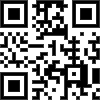АДАПТИВНІ КОПІНГ-СТРАТЕГІЇ ПОВЕДІНКИ ЯК УМОВА ЗБЕРЕЖЕННЯ І ПІДТРИМАННЯ ПСИХОЕМОЦІЙНОГО ЗДОРОВ'Я ПЕДАГОГІВ
DOI:
https://doi.org/10.30888/2663-5712.2020-03-01-022Ключові слова:
психоэмоциональное здоровье, копинг-стратегии, копинг-стратегии поведения, адаптивные копинг-стратегии поведения.Анотація
Психоэмоциональное здоровье педагога является фактором успешности образовательной системы и определяет эффективность процесса воспитания и обучения дошкольников, особенно в период реформирования образования. Изучение механизмов стрессоустойчивости и совлПосилання
Bezrukikh M. M. health-Saving school. Moscow: Moscow psychological and social Institute. - 2012. - 240 p.
Goranska N. About. The emotional health of a teacher in the conditions of modernization of education /Siberian psychological journal. - 2013. - No. 29. - Pp. 86-89.
Ezhova O. N. Formation of adaptive coping strategies of behavior among teachers as a condition for preserving and maintaining their mental health: Diss. ... kand. crazy. sciences'. - Samara. - 2010. - 180 sec.
Lazarus R. Psychological stress and coping processes. - M.: Medicine. - 1966. - 466 p.
Maklakov A. G. Personal adaptive potential: its mobilization and forecasting in extreme conditions Psychological journal. - 2011. - Vol. 22. - No. 1. – S. 16 – 24
Melnikov V. I. the mechanisms of Psychological correction of stress conditions of the individual. Dis. ... kand. crazy. sciences'. - Novosibirsk. - 2008.
Formanyuk T. V. Syndrome of "emotional combustion" as indicator of professional disadaptation of the teacher // Questions of psychology. - 1994. - No. 6.
Опубліковано
Як цитувати
Номер
Розділ
Ліцензія
Авторське право (c) 2020 Автори

Ця робота ліцензується відповідно до Creative Commons Attribution 4.0 International License.





